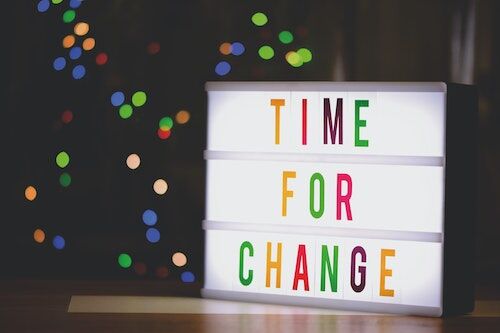By Fran LaMattina, PhD, MCC. Patience is a virtue that is sometimes hard to come by in the fast-paced culture we live in, whether in the US or in another area of the globe. Most of us are more familiar with our own experience with impatience than we are with consciously choosing to be patient. That impatience may show up as a lack of acceptance of ourselves and others, leading to distrust or tension in relationships. Sometimes it is manifested as unrealistic expectations of ourselves or others, which can complicate or even fracture relationships. Sometimes it is experienced as passive-aggressive behaviors, which position us with others as inconsistent and unsafe to others. Sometimes we can’t put our finger on the behavior or feeling of impatience, and we are only aware of frustration, and choose to push the emotion back and withdraw. No matter what emotion a situation that requires patience causes, it seems that change and growth is often the platform that ushers in the need to develop patience.
I was once told by my first coach, “People change slowly.” I have found that statement to be true for myself and most people who I have had the privilege of coaching over the past twenty years. Developing patience requires an acceptance of that phrase, both for ourselves and others.
Patience with others begins with patience and kindness to ourselves. Choosing to accept we are not perfect is often an important first step. We are all human, which means we all make mistakes. Those of us who have studied emotional intelligence know that a “self-deprecating” sense of humor is a sign of emotional maturity. To laugh at our mistakes or silly statements shows we don’t take ourselves too seriously. The flip side of the coin is also true: If we can’t laugh at ourselves and accept we make unintentional mistakes is a sign we have room to grow emotionally. Room to grow is not an indictment; rather it’s an admission that we are a work in progress. Patience with ourselves comes when we give ourselves space to grow, and see the future as a vast opportunity to take two steps forward, and one step back as we venture out to change.
Children do this naturally: they know that they are growing physically, emotionally, intellectually, and relationally. Unless they experience external unnecessary pressure, they know they can’t change immediately. They learn this from their schoolwork, sports, and daily responsibilities, to name a few. They know that learning requires mid-course corrections, time, and refinement. They keep trying until they learn how to do what they are attempting. Yet, when we become adults, we often expect ourselves to learn something new the first time we try. If we don’t achieve perfection, we may tell ourselves we’re not good at it, and abandon any further attempts. We become impatient with ourselves, sometimes implode with shame, and become impatient and unkind to ourselves. Sometimes we pass that on to others around us and cause distance in the relationship without realizing it. We express our impatience in our words and actions.
Over the years, I have learned both personally and through partnering with others that, if we can’t be patient with ourselves in the process of growth and change, we can’t be patient with others as they are in the process of growth and change. Patience leads to being kind. Kindness provides a backdrop for encouraging others to change at their pace and on their terms. Some of the most successful leaders I know are those who patiently support others in the growth process.
Chart your path for growth as a leader, strengthening your emotional intelligence and patience: schedule a consultation with Fran.

